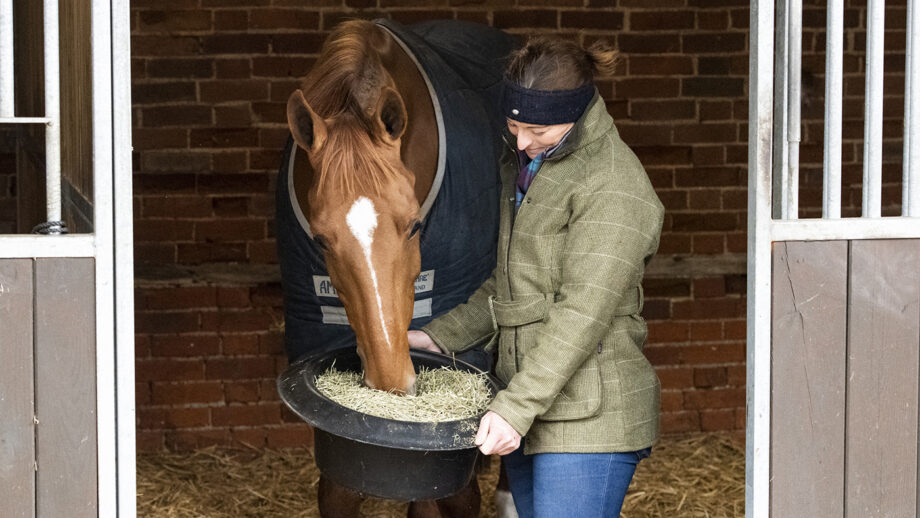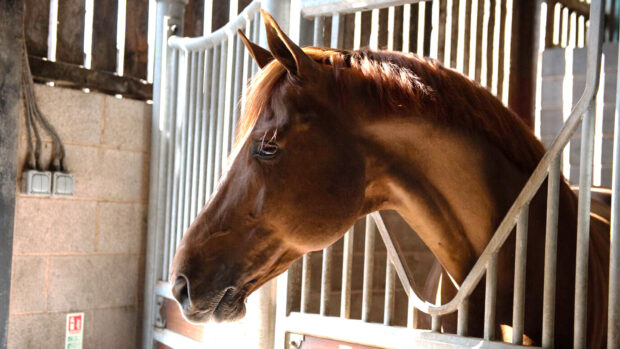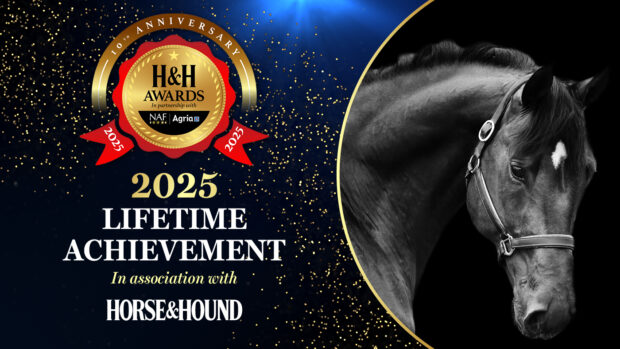Advertisement Feature with Dengie
Over the past decade, studies have increased our awareness and understanding of equine gastric ulcer syndrome (EGUS) but there is still much to learn. We know there are two distinct diseases that affect different areas of the stomach: equine squamous gastric disease (ESGD) and equine glandular gastric disease (EGGD).
EGGD is increasingly being recognised as an inflammatory condition rather than an ulcerative one and stress is a really important risk factor. This is an important point to recognise in relation to both risk factors and treatment protocols; the two diseases should be viewed very separately and even if your horse has both, it doesn’t mean they are related.
Studies are just starting to show that within EGGD, the form of the lesion (nodular versus flat) appears to have a bearing on the effectiveness of current treatment options (Sundra et al., 2024). The current veterinary, evidence-based advice is to implement the same feeding management as for ESGD, which amounts to reducing starch intake and feeding plenty of fibre.
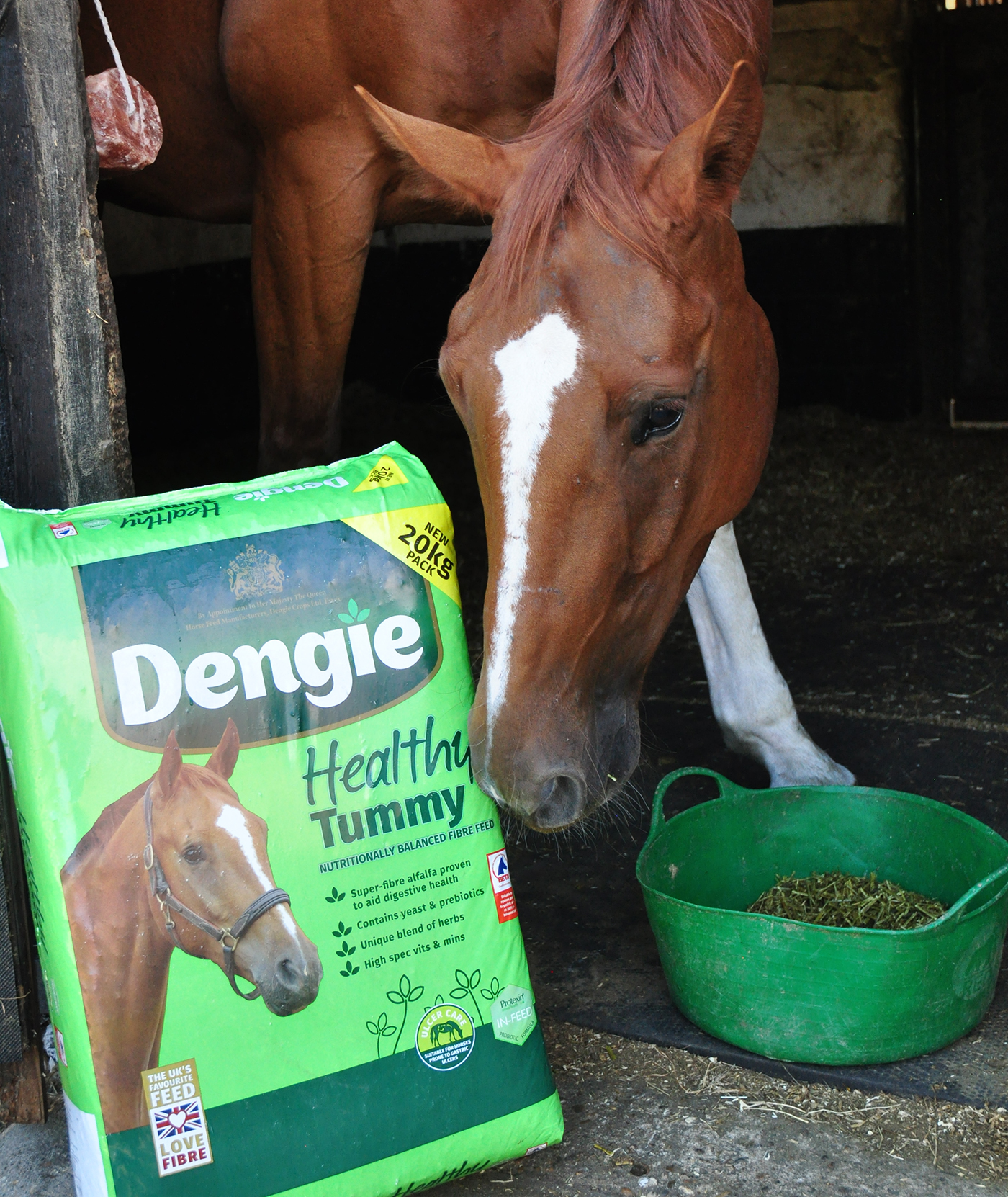
Feeding the poor doer
High quality fibre feeds containing alfalfa, such as Dengie Healthy Tummy, provide an energy (calorie) level comparable to a competition mix or cube, but with around 10 times less starch. Recent studies have shown that even high level competition horses can be sustained on rations using hay and alfalfa with only a very small proportion of cereals without any detriment to performance and muscle tone (Martin et al., 2023). Another study showed that success with horses with EGGD was 47.7 times more likely when alfalfa pellets were used in place of oats in the ration (Julliand et al., 2023).
- To learn more about this, listen to this podcast
Dengie Healthy Tummy is a blend of chopped and pelleted alfalfa which provides a nutritionally balanced ration when fed to recommended quantities alongside forage. It contains Protexin In-Feed Formula to support digestive health as well as a unique blend of herbs that make the feed extremely palatable.

Credit: Katie Neat/Eventing Times
“Dengie Alfa-A Oil is an essential element of our horses’ diets. The combination of pure alfalfa and oil provides slow-release energy and helps our horses maintain condition. I know a healthy, happy horse can give 100% in both training and competition. My horses have never performed, looked or felt better.” Alex Bragg and Quindiva
Feeding the good doer
Although horses with ulcers were historically thought to mostly be poor doers and underweight, a more recent study from Belgium found that only half of those with ulcers were underweight (Galinelli et al., 2019), with many good doer and overweight horses also now suffering from the condition. Read more about feed management of good doer horses with gastric ulcers from Dengie.
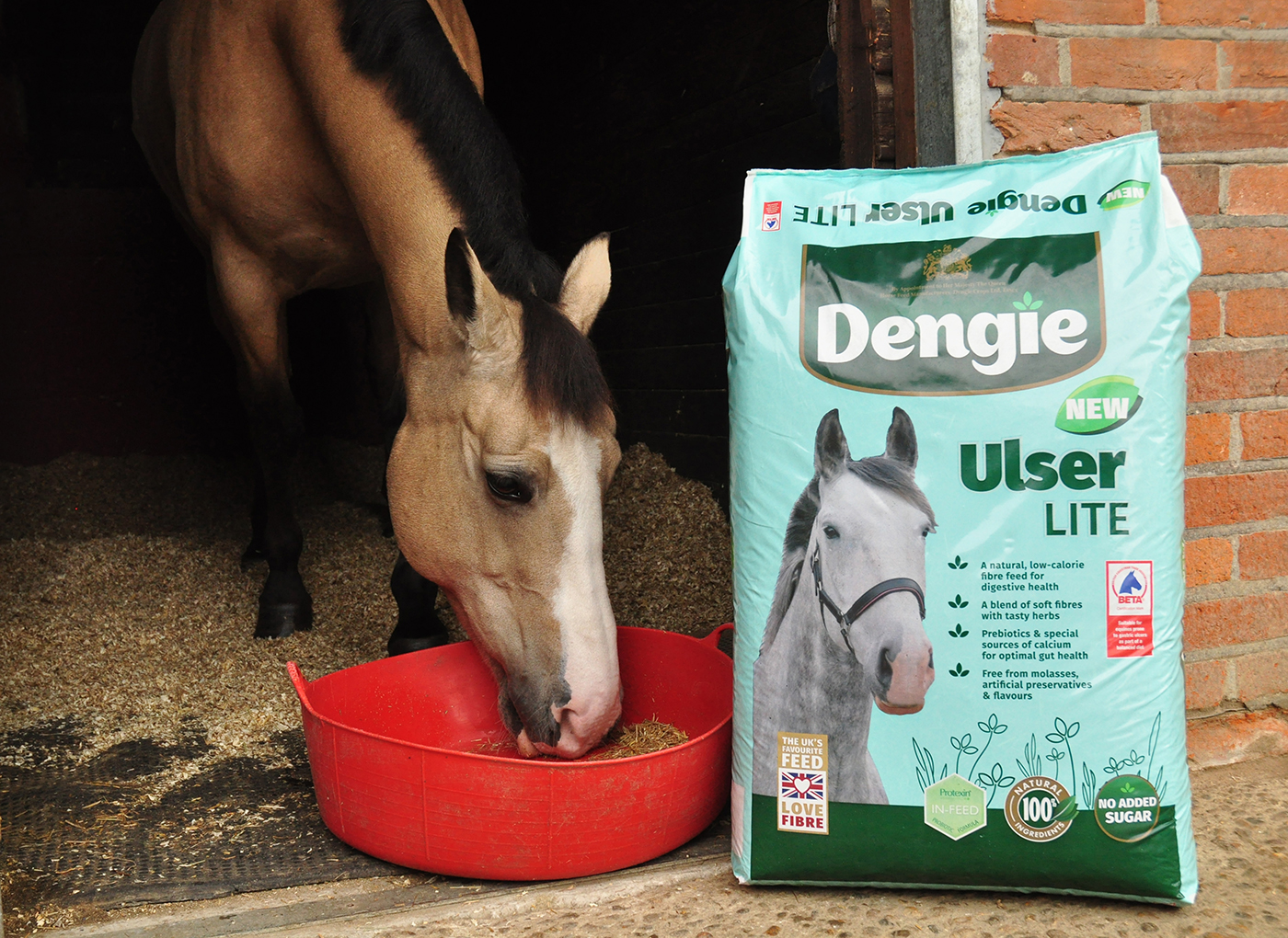
Dengie’s Ulser Lite has been developed with the ulcer-prone good-doer in mind. The main ingredient is chopped oat straw, which is blended with chopped grass and grass pellets to provide some natural sweetness whilst keeping the energy level as low as possible. Studies have shown that straw is a safe ingredient for horses with ulcers when fed at up to 50% of the total diet (including grazing and conserved forage). This means Ulser Lite can also make a useful partial forage replacer for good doers. The addition of prebiotics and yeast through the Protexin In-Feed Formula within the Ulser Lite help to promote digestive health, and the added herbs are ideal to tempt even the fussiest eaters.

Credit: Daydream Photography
“I have fed Dengie for as long as I can remember. Ensuring the horses receive quality fibre to support gastric health has always been my priority, and Dengie feeds offer just that.” Lewis Robertson-Carrier and Diego V
Test your knowledge
Dengie’s team have created a Nutrition Hub so why not test your knowledge on all things gastric health and ulcers? Start here…
Choosing a suitable feed
The BETA approval mark for horses prone to EGUS was set up in conjunction with, and is endorsed by, the Veterinary Medicines Directorate (VMD), with very strict criteria about ingredients used in the products and claims that can be attributed to them. It’s therefore a great independent indicator of a product’s suitability for horses prone to EGUS.
Dengie have four products with the BETA approval mark:
- Healthy Tummy: A nutritionally balanced, high-fibre feed, containing Protexin In-Feed Formula to support digestive health.
- Alfa-A Oil: A precision-dried alfalfa with added rapeseed oil for extra slow-release calories to support weight and condition.
- Performance Fibre: A soft blend of grass and alfalfa with a light molasses coating and added spearmint oil to tempt fussy feeders.
- Ulser Lite: A low calorie fibre feed with added herbs, yeast and prebiotics to support digestive health.
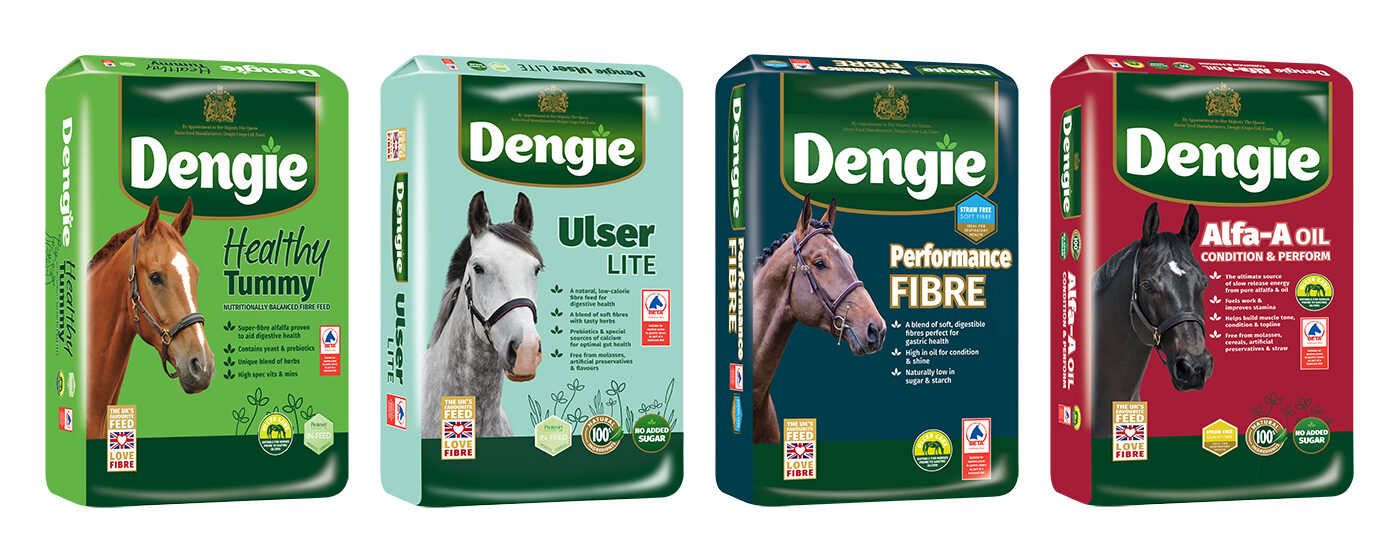
For more information or if you would like the Dengie nutrition team to review your horse’s diet and help you select the most appropriate feed, get in touch by calling 01621 841 188 or by completing an online feed advice form.

